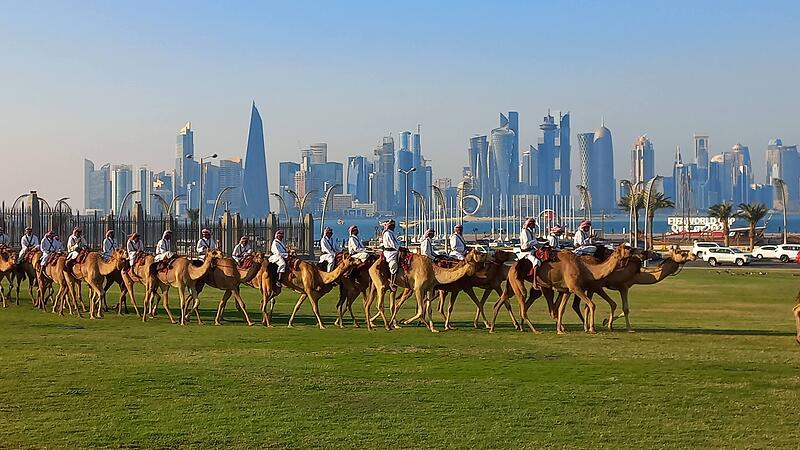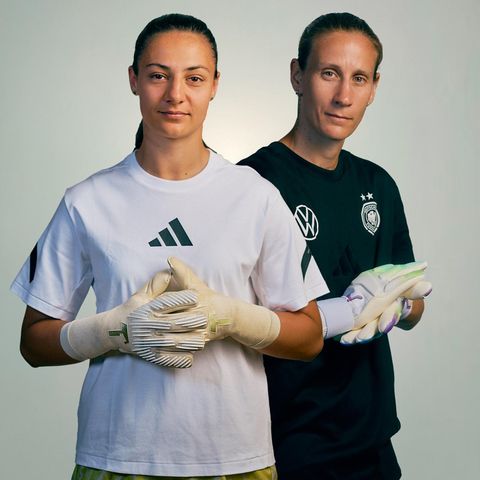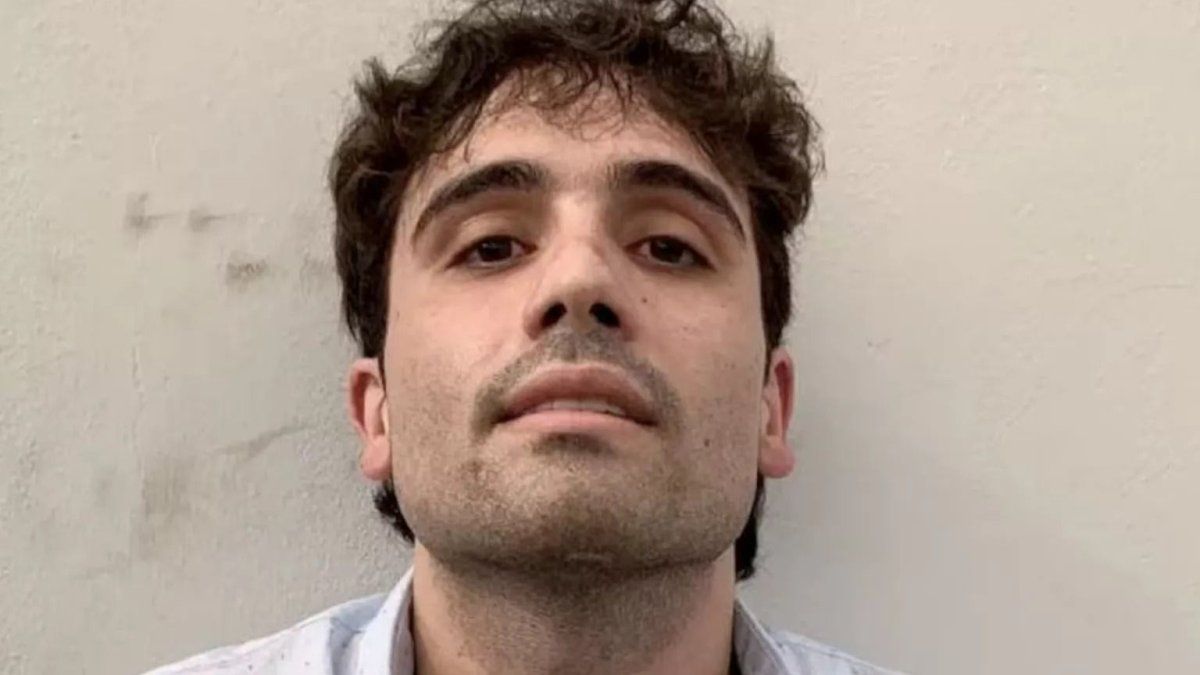Image: Lehner
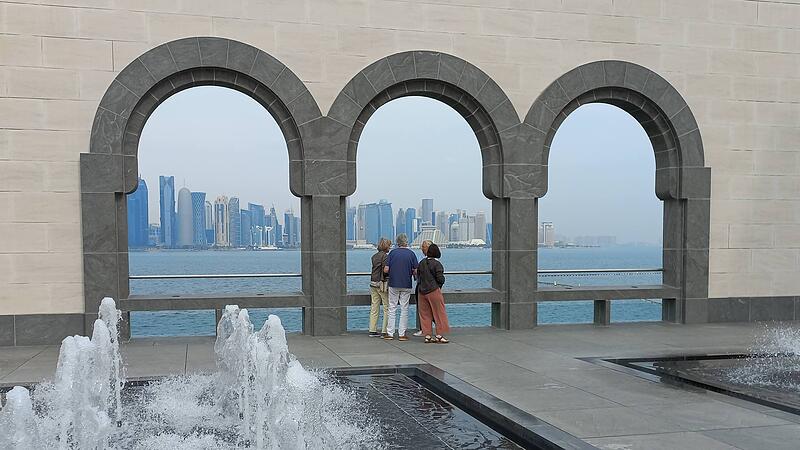
Image: Lehner
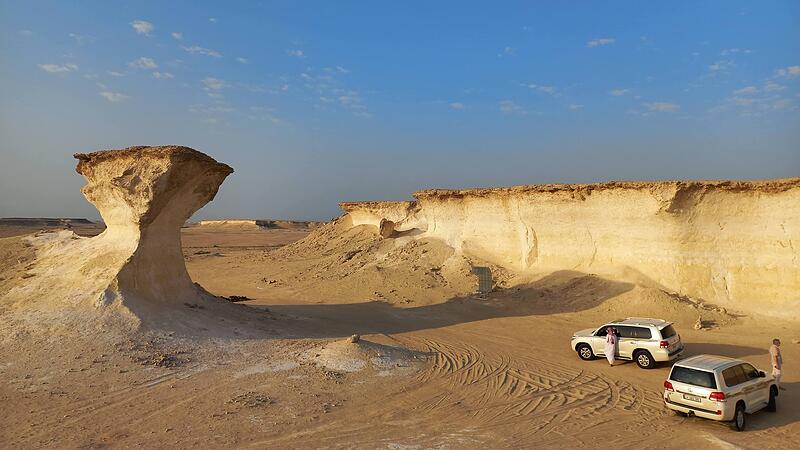
Image: Lehner
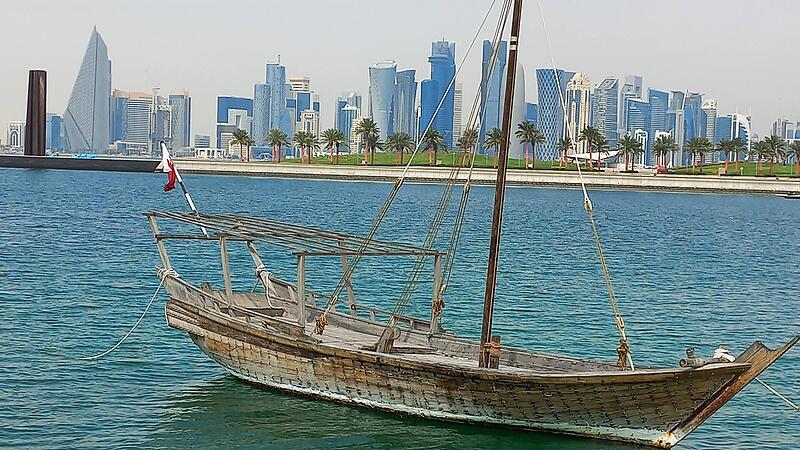
Image: Lehner
The capital Doha is like other metropolises that are blessed with sea and beaches: long sandy bays behind which an impressive skyline of residential, hotel and commercial buildings is lined up. The Corniche promenade stretches seven kilometers along the Arabian Gulf (known to us as the Persian Gulf) to West Bay. One bay further, the noble residential area “The Pearl” stretches over 13 islands into the sea. Another island is being heaped up.
Between Pearl and West Bay lies the most modern entertainment district: Katara Cultural Village, with amphitheater, opera, mosque, department stores, galleries and restaurants. The architects provided a colorful mix of columns, domes and other knick-knacks. In these quarters, the guest finds diversion after relaxing in his elegant hotel and enjoying life in the spa, pool and beach. He can stroll through the large shopping centers with shops of all world brands. The Ponte Vecchio is reproduced in the Villaggio; Gondoliers invite you to a trip down the Grand Canal.

Image: Lehner
Architects also come from all over the world, and their creativity gives the emirate splendor, for example in the Museum of Islamic Art or in the National Museum, which the Frenchman Jean Nouvel designed as an oversized, crystalline sand rose. All registers of modern museum technology are pulled out. But the contrasts could not be greater. The Qataris love their falcons; they chip them, insure them, take them to the falcon doctor, who examines the blood or replaces feathers. They love their camels, let them compete in beauty contests (even Botox is said to be injected) or in camel races. At the beginning of March, young grooms move hundreds of dromedaries on the huge racecourse near Al Shahaniyah in order to prepare them for the next day of racing. They swing on the animals’ backs and swipe on their mobile phones. Incidentally, there is no human in the saddle in the competition, but a robot the size and appearance of a shoebox. Years ago, a ban was imposed on children from Pakistan, India, Ethiopia, etc., who had been kept as jockey slaves for decades.
Family time at the campsite
Qataris also love living in tents like their nomadic ancestors. At the beginning of November, the Emir opens the camping season; anyone can apply for a campsite anywhere on the peninsula. It is then populated for six months. They leave the urban villa or apartment for a few days or weeks and chill out on the campsite, with a power generator, large screen, shower and toilet. Friends are welcomed who find their hosts even behind the most remote dunes. They enter the coordinates into their navigation app. The 5G standard is nationwide. Just Orient 2.0.
change of scenery. “My God, is that green,” exclaims tour guide Tania as the Landcruiser has fought its way to the top of a dune. The view covers tens of kilometers over nothing but stone and sand, just a few dull green bushes. Usually everything is brown and withered, but last winter it rained a lot. Even the desert hyacinths are blooming. Then the drivers roar down the dunes in their four-wheel drive vehicles, throw up high sand fountains in curves and enjoy the screams of fear from the passengers. Dune bashing is the name of the fun that locals appreciate just as much as guests. Finally, at Khor Al Adid in the south, very close to the border with Saudi Arabia, there are views of the turquoise Gulf and the Inland Sea.

Image: Lehner
It’s very romantic in the desert on the west coast near Zekreet, where bizarre sandstone formations rise into the cloudless sky. The US artist Richard Serra had four steel plates, each around 14 meters high, placed in the desert sand over a distance of one kilometer. As the sun sinks deep red into the sea behind them, it becomes clear how atmospheric camping can be. Tour operators offer it for tourists.
Qatar is as small as Upper Austria and consists of nine tenths of desert. In view of the 560 kilometers of coastline, the sea and water sports also play a major role. The spectrum ranges from snorkeling to kayaking through the mangroves at Purple Island. However, the population is now crowding together in and around the capital Doha, namely around two million of the 2.8 million inhabitants. No wonder, within just a few years it has received a modern infrastructure, with four subway lines and trams that can be used free of charge.
Income world champion and climate sinner
What is missing is fresh water. “When it rains, we happily run outside,” says the German tour guide, who has lived here for almost ten years. The reservoirs are filled with desalinated seawater. The energy for this is in abundance. Ever since the country gained independence from the British in 1971, the ruling Al-Thani family has gotten a lot right. In the same year, the world’s largest natural gas field was discovered, and unlike in some neighboring countries, a large part of the petrodollars was spent on the country’s own population: schools, universities, hospitals, a social system. With a per capita income of almost $100,000, the approximately 270,000 citizens are the richest in the world, ahead of Luxembourg – and with 31 tons per capita they have the highest emissions of greenhouse gases.
It is no longer just raw materials that are exported, but added value in the areas of plastic, aluminum and steel. The surpluses are invested in foreign companies: Siemens, Volkswagen, Barclays, Louis Vuitton, Credit Suisse… The sovereign wealth fund manages around 450 billion dollars. Tourism should now give the country an even broader economic base and secure it for a future without petrochemicals.

Image: Lehner
Small museums in the sensitively renovated old town district of Msheireb remind us that this was not always the case. They show the meager life of the nomads, the fate of the slaves, the dangerous work of the first oil workers from 1930 and the pearl divers. The latter brought the only income for decades. When the Japanese developed artificial pearls in 1929, exports plummeted. The Bedouin people lived in abject poverty. Oil could only be extracted on a larger scale after the Second World War.
Money is no longer an issue, it’s just there. Sheikh Faisal runs an art and curiosity museum with 40,000 exhibits and a magnificent show of vintage cars on his Al Samriya estate with a riding stable (160 horses). Next to it is his posh Collection Hotel. The star guest during the World Cup was Portugal’s soccer star Ronaldo.
What is realized is what indulges the zeitgeist and what is useful. Or both: In the Education City one (foreign) university follows the other. The National Library in book form is an architectural beacon – like many other public objects. And: In the huge city there is hardly a litter of rubbish on the streets and squares, and there are no beggars about. The guests are not attacked by vendors, as is common in some Mediterranean regions. “Nothing goes away here,” says the tour guide when a mobile phone is left in the restaurant: “I don’t have to be afraid when I’m out and about alone at night.”
A state under general suspicion
The autocratic state intimidates the residents with a police state, the Qatar critics will comment on this pleasing state of affairs. Since the country was awarded the World Cup a good ten years ago, it has been under general suspicion. However, there is no sign of surveillance anywhere. Politics is discussed openly. And denounced the arrogance and hypocrisy of the West. He demonizes Qatar because of downtrodden guest workers and at the same time begs for natural gas.
Without a doubt, Islamic law is applied, the Sharia. But the country has a constitution, and women have had the right to vote and stand for elections since 2003. 70 percent of the students are female, women are allowed to drive cars and move around alone in public – unlike in many other Islamic countries.
In 2017, the Arab neighbors imposed a blockade on the peninsula. The main reason: the emir is said to support radical organizations such as the Islamic State, the Muslim Brotherhood and Hamas. After a brief panic, the boycott turned out to be an advantage. The government subsequently expanded vegetable production, bought 24,000 Holstein cows and set up a dairy business.
The friendship with Iran and Russia makes the small center of power in the Gulf difficult to assess. On the other hand, in Doha is the headquarters of the US forces for the Middle East. War equipment is being bought diligently in the USA. That too is Orient 2.0. Money makes the world go round. But we don’t need to go to Qatar to find out.
useful information
- Getting there: Qatar Airways (which has already been voted the best airline in the world seven times) flies daily from Vienna to Doha in around 5.5 hours, depending on the day of travel around 400 to 500 euros. The time difference is two hours.
- Behave: Guests should adhere to the dress code when outside the hotel – shoulders and knees covered for men and women. Bikinis and swimming shorts are not allowed on the public beach, but are allowed in private bathing establishments (clubs, resorts, hotels).
- Eat: A dream from 1001 Nights – all hotels have good to excellent cuisine, with a comprehensive range of oriental dishes and international dishes. Of course, McDonald’s is already here. There are hundreds of high standard restaurants, especially Lebanese, Persian (tip: the “Parisa” in Souq Waqif) and Qatari.
- Beverages: Alcohol is not actively offered and may only be sold by licensed shops/bars. On request, it is served in many hotels and restaurants. The prices are high. On the other hand, Gahwa, the Arabic coffee made from unroasted beans and spices (cardamom, saffron, cinnamon…) is served everywhere. There is also a wide range of juices.
- Package deals incl. flight, top hotel, breakfast, seven days from approx. 1100 euros. However, the additional costs are higher than in Europe (drinks, food, entrance fees). In addition to the large international hotels, many with sandy beaches, there are also idyllic places, such as boutique hotels on the oldest Arabic market, the Souq Waqif, or a tent hotel on the organic farm Heenat Salma (with bathroom and toilet in the tent and an excellent restaurant).
Source: Nachrichten

